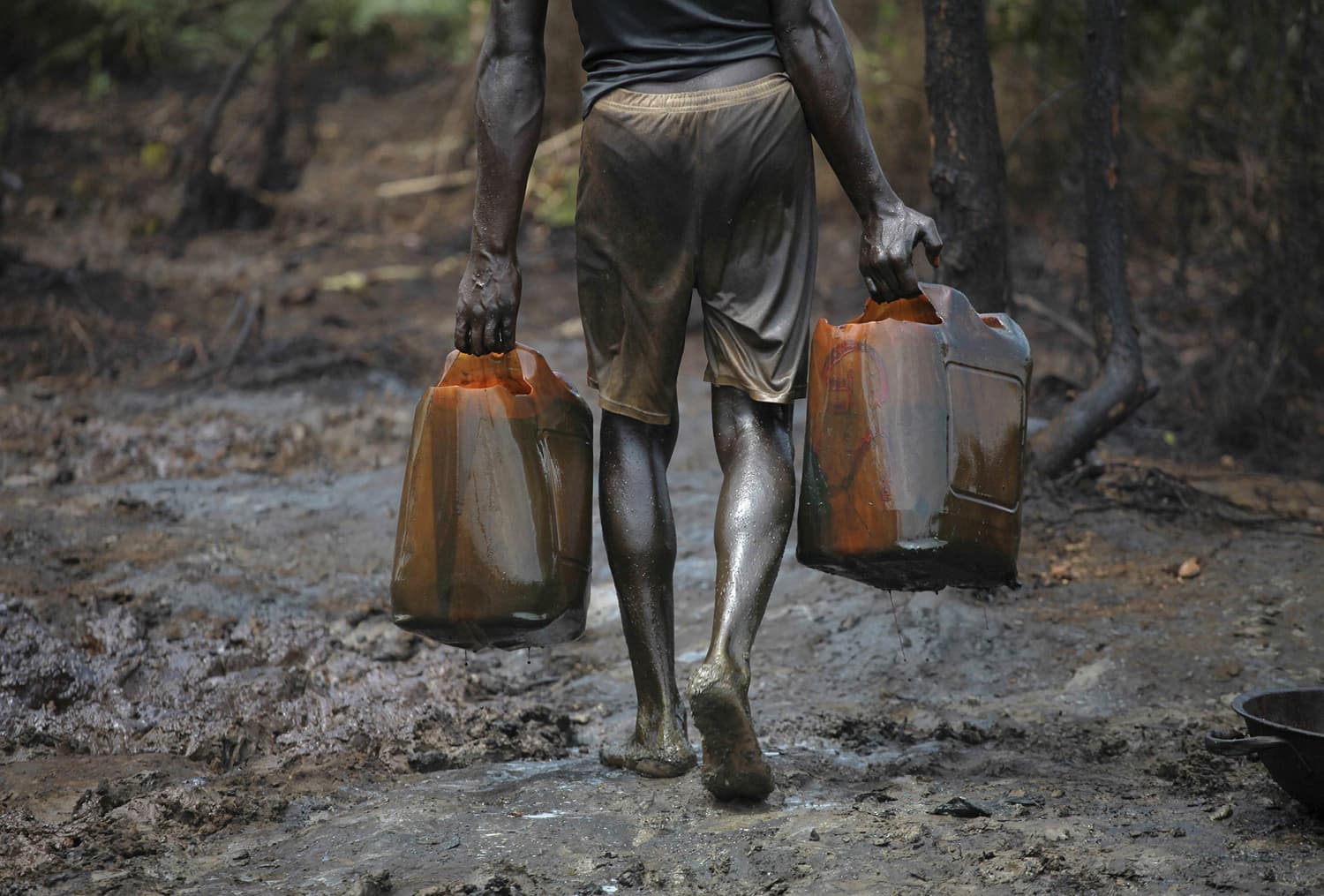In 2021, Nigeria lost at least $3.5 billion revenue to crude oil theft, a figure that represents 10 per cent of Nigeria’s foreign reserves. Oil theft and pipeline vandalism threaten oil exploration and accruable revenue. In 2019, the Nigerian National Petroleum Corporation (NNPC) announced that it lost ₦159 billion to oil theft and pipeline vandalisation. The losses were put at $2.8 billion in 2018. Although resources were appropriated to secure oil facilities, the activities of oil thieves continue unabated.
Oil theft also endangers communities. Oil theft combines with the consequences of oil exploration to deepen the challenges communities face. The Niger Delta, where Nigeria get most of its oil, is regarded as one of the most polluted places on the planet. Oil exploration poses varying degrees of health, environmental and development challenges for oil-producing communities. In January 2022, a petition calling for a probe into soot pollution and illegal refineries in Rivers state received at least nine thousand signatories. Over a month of an oil spill was finally shut in Nembe, Bayelsa state, in December 2021. A subsequent Senate resolution held that the leak spewed two million barrels of oil and gas equivalent into the Niger Delta creeks and mangrove swamps.
To solve oil theft, government should involve communities. The inclusion of host communities in pipeline protection and security contracts is argued to help government manage the threats to revenue sources. According to a report, 12 illegal oil storage sites were uncovered by a task force against illegal bunkering set up in Ikwere local government area in Rivers state. This incident confirms the gains of a combined formal security agencies-led and community involvement approach towards securitising oil facilities. The Ikwere model should be assessed to replicate it across the board. The securitisation of oil pipelines should be promoted as a collective responsibility.
Host communities’ involvement will create a sense of ownership and social inclusion. Oil-producing communities are challenged developmentally. Moreover, unemployment and the effects of oil exploration are dire on the population. The involvement of communities in protecting oil facilities will help create jobs and trigger a sense of ownership. That way, government and oil companies will be able to curtail the spate of oil theft through the local intelligence and support community members will provide to formal security actors. Additionally, it will provide avenues for wealth creation and reduce environmental issues in host communities.
Furthermore, the capacity of security organisations should be improved to manage the involvement of host communities. For instance, oil pipeline securitisation is yet to be fully embedded into the security architecture of Nigeria. The Nigerian Security and Civil Defence Corps (Amendment) Act, 2007, empowers the NSDC to protect public infrastructures, including oil pipelines. However, it appears that there is a lack of collaboration and intelligence sharing among security agencies in securing public infrastructure. Therefore, with the NSDC taking centre stage, security outfits have to collaborate on securitisation strategies for oil facilities. This should also involve efforts to improve the synergy between security actors and communities where oil facilities are situated.
Beyond community-focused responses to oil theft, government must address widespread impoverishment in the region. Pipeline Hell Fires recommends that government should lessen the incidence of mass poverty by creating an enabling environment for small scale businesses. This will help create alternative sources of livelihood for people whose agricultural or fishing-based incomes have been affected by disastrous oil exploration activities. The jobs created from communities’ involvement in securitisation are another opportunity to disincentivise the operation of illegal oil bunkering, pipeline vandalism, and militancy. Losses to oil theft in Nigeria indicates the need for holistic review and engagements on issues around oil exploration, amnesty for Niger Delta ex-militants, and oil-producing communities’ development.




